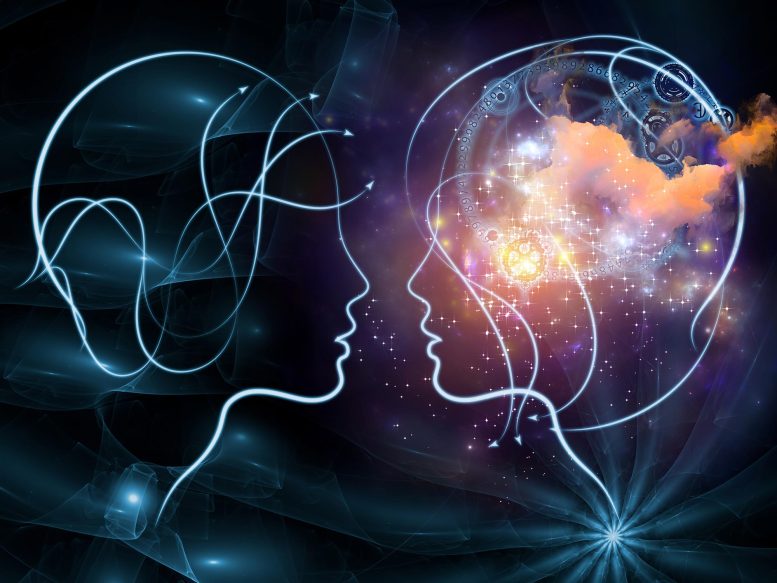
Cambridge Study Reveals Mindfulness Can Trigger Profound Altered States of Consciousness
-
by Anoop Singh
- 18

A recent study from the University of Cambridge has identified that mindfulness training can induce altered states of consciousness such as disembodiment and unity, which are not always positive. While the popularity of mindfulness programs has grown, especially as a stress reduction tool, the study underscores the importance of open communication between participants and instructors about the potential side effects. Experiences during mindfulness can vary widely, from pleasant to unsettling, and participants should be prepared to discuss these with instructors or healthcare professionals if they cause concern.
Mindfulness training may cause altered states of consciousness, including disembodiment and unity, according to a University of Cambridge study. While often positive, these experiences can sometimes be unsettling. Awareness and open communication about these potential side effects are essential for both teachers and students.
A new study from the University of Cambridge suggests that participants in mindfulness training may undergo altered states of consciousness, experiencing sensations of disembodiment and unity.
The team says that while these experiences can be very positive, that is not always the case. Mindfulness teachers and students need to be aware that they can be a side-effect of training, and students should feel empowered to share their experiences with their teacher or doctor if they have any concerns.
Mindfulness-based programs have become very popular in recent years. According to recent surveys, 15% of adults in the UK have learned some form of mindfulness. They are often practiced as a way of reducing stress or coping with depression and anxiety. There is anecdotal evidence that practicing mindfulness can lead to alterations of the senses, self, and body boundaries, some even similar to those induced by psychotropic drugs.
Study on Mindfulness and Stress
From September 2015 to January 2016, the University of Cambridge conducted a randomized controlled trial to assess the effectiveness of mindfulness training as a way of coping with the stress of examinations and found that it can help support students at risk of mental health problems.
Dr. Julieta Galante from the Department of Psychiatry at the University of Cambridge, who led the trial, said: “There’s been anecdotal evidence that people who practice mindfulness experience changes in how they perceive themselves and the world around them, but it’s difficult to know whether these experiences are a result of mindfulness practice or whether people who are more prone to such experiences are also more likely to practice mindfulness.
“Because we’d been running a randomized trial of mindfulness practice with several hundred students at Cambridge, we realized this offered us an opportunity to explore this question further.”
The team behind the trial followed up with participants a year later to investigate whether they had experienced any of the altered states of consciousness being reported anecdotally. The results are published in the journal PLOS ONE.
Dimensions of Experience
Participants were asked to complete a questionnaire that explored 11 ‘dimensions’ such as: spiritual experience; blissful state; disembodiment; and unity. In experiences of unity there is a sense that borders dissolve and everything, sometimes including the sense of time, is perceived in an integrated way. Disembodiment experiences often consist of a floating sensation or a dissolution of body boundaries, which may facilitate strong unity experiences.
In total, 670 participants took part in the randomized trial. Around a third each from the mindfulness trial and the control arm went on to complete the questionnaire about experiences of altered states of consciousness.
The researchers found that people who had received the mindfulness training were twice as likely as those in the control group to experience unity and disembodiment.
When the researchers explored the relationship between the total hours of formal mindfulness practice and the presence and intensity of experiences of altered states of consciousness, they found that the more people practiced, the more likely they were to have an experience of unity, disembodiment, or of a blissful state.
Participants who reported having meditated in the six months prior were asked if altered states of consciousness happened during meditation. Based on this sub-sample of 73 participants, 43% reported unity experiences during meditation, 47% blissful states, 29% disembodiment experiences, and 25% insightfulness experiences.
Dr Galante said: “Although we can’t say definitively, our results at least suggest the possibility that mindfulness training causes these experiences of unity and disembodiment. It aligns with other studies showing that people who practice mindfulness training are more likely to describe experiencing a sense of relaxed self-boundaries and broadening their spatial awareness beyond the physical body.”
Dr Galante, who practices mindfulness, has herself experienced these altered states of consciousness.
“I’ve benefited a lot personally from meditation and mindfulness and I’ve also had many of these experiences,” she said. “They were intense, and at first I found it difficult to share them with my meditation teacher. I didn’t know if they were normal or desirable or if they were a sign of problems with my mental health.”
While many experiences of altered states of consciousness are likely to be interpreted as pleasant, this may not always be the case, and Dr. Galante says that it is important for teachers and their students to be aware that they may arise and be open to talking about them.
She added: “The most common and intense experiences tend to be those that do not have intrinsically unpleasant characteristics. Some, such as bliss, can feel extremely pleasant. But some experiences, such as disembodiment or altered sense of self could be perceived as unpleasant, or startling, even alarming, especially if you’re not expecting them.
“It’s important that people who are offered mindfulness are told about the possibility that they may come across these experiences. That way, if they do experience them, they shouldn’t be disconcerted. There may be nothing wrong with their experience, but it may be useful for them to check in with their mindfulness teacher, and if the experience was negative, to also consider discussing it with their doctor.”
Reference: “Altered states of consciousness caused by a mindfulness-based programme up to a year later: Results from a randomised controlled trial” by Julieta Galante, Jesús Montero-Marín, Maris Vainre, Géraldine Dufour, Javier García-Campayo and Peter B. Jones, 17 July 2024, PLOS ONE.
DOI: 10.1371/journal.pone.0305928
The research was supported by the University of Cambridge Vice-Chancellor’s Endowment Fund, the University Counselling Service, and the National Institute for Health Research (NIHR) Applied Research Collaboration East of England programme.
A recent study from the University of Cambridge has identified that mindfulness training can induce altered states of consciousness such as disembodiment and unity, which are not always positive. While the popularity of mindfulness programs has grown, especially as a stress reduction tool, the study underscores the importance of open communication between participants and instructors…
A recent study from the University of Cambridge has identified that mindfulness training can induce altered states of consciousness such as disembodiment and unity, which are not always positive. While the popularity of mindfulness programs has grown, especially as a stress reduction tool, the study underscores the importance of open communication between participants and instructors…
